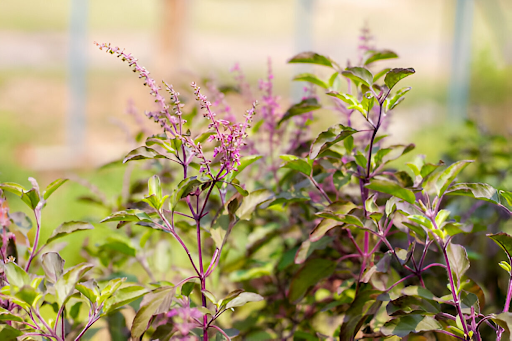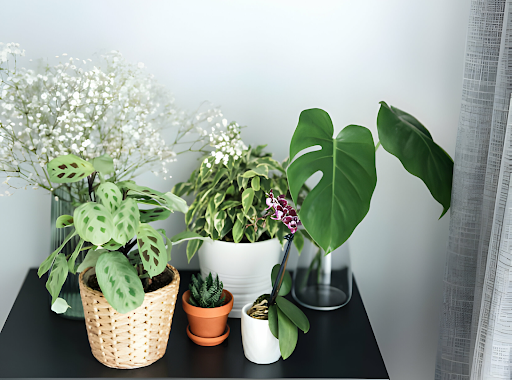Growing Tulsi at Home: A Comprehensive Guide

Tulsi, or Holy Basil, is a unique herb in Indian households. It is known for its medicinal properties and aromatic leaves. The Tulsi is worshipped and holds immense cultural and spiritual significance. Whether you’re a seasoned gardener or a beginner, growing Tulsi is a special experience. To buy tulsi plants online, visit Urvann to find the best collection of healthy plants. This comprehensive guide will walk you through everything you need to know about planting, caring for, and harvesting Tulsi.
Why Grow Tulsi?
Tulsi is not just any ordinary plant; it holds immense value. Here are some reasons why you should consider growing Tulsi at home:
- Medicinal Benefits:
Tulsi leaves are known for their anti-inflammatory, antibacterial, and antiviral properties. They treat common colds, respiratory issues, and digestive problems.
- Aromatic and Flavorful:
Tulsi leaves add a unique flavour to teas and many culinary dishes.
- Spiritual Significance:
In Hinduism, Tulsi is considered sacred and is often grown in households for spiritual reasons. Women worship the Tulsi plant first thing in the morning.
- Easy to Grow:
Tulsi is easy to grow, making it an excellent plant for beginner gardeners.
Choosing the Right Variety
There are several varieties of Tulsi, each with its unique characteristics. The most common types include:
- Rama Tulsi:
This variety has green leaves and is known for its medicinal properties.
- Krishna Tulsi:
With its dark purple leaves, Krishna Tulsi is famous for its therapeutic benefits.
- Vana Tulsi:
This wild variety has green leaves and a strong aroma, making it ideal for culinary uses.
Planting Tulsi
- Location
Tulsi thrives in warm, sunny environments. Choose a spot in your home where the plant can receive at least 6-8 hours of direct sunlight daily. A south-facing window or balcony is perfect.
- Soil
Tulsi prefers well-draining soil rich in organic matter. To create the perfect potting mix, mix garden soil, compost, and sand.
- Sowing Seeds or Transplanting
You can grow Tulsi from seeds or transplant a sapling. Here’s how to do it:
- Sowing Seeds: Start by filling a small pot with the soil mix. Sprinkle the Tulsi seeds on the surface and lightly cover them with a thin layer of soil. Water gently to avoid displacing the seeds. Keep the soil moist but not waterlogged. The seeds should germinate in about 1-2 weeks.
- Transplanting: If you have a Tulsi sapling, dig a hole in the soil, place the sapling, and cover the roots with soil. Water the plant immediately after transplanting.
Caring for Tulsi
- Watering
Tulsi needs consistent moisture but prefers to avoid sitting in water. Water the plant when the top inch of soil feels dry.
- Fertilizing
Tulsi benefits from regular feeding. During the growing season, use a balanced organic fertiliser, such as vermicompost, every 4-6 weeks.
- Pruning
Pruning helps keep the Tulsi plant bushy and healthy. Pinch off the tips of the plant to encourage branching. Regularly remove any dead or yellowing leaves to maintain plant health.
Harvesting Tulsi
You can start harvesting Tulsi leaves once the plant is about 12 inches tall. Here’s how to do it:
- Morning Harvest:
The best time to harvest Tulsi leaves is in the morning when the essential oils are most concentrated.
- Selective Picking:
Use scissors or fingers to snip off the leaves or branches you need. To ensure continuous growth, avoid taking more than one-third of the plant at a time.
- Drying and Storing:
If you have a large harvest, you can dry the leaves by spreading them out in a shaded, well-ventilated area. Once completely dry, store the leaves in an airtight container.
To buy tulsi pot online, visit Urvann and get the most healthy plants.
Common Issues
- Yellowing Leaves
If your Tulsi leaves turn yellow, it could be overwatering, poor drainage, or nutrient deficiencies.
- Slow Growth
Slow growth may result from insufficient sunlight, poor soil quality, or lack of nutrients. Ensure your Tulsi plant gets enough light, and consider using a balanced fertiliser such as vermicompost to boost growth.
Conclusion
Whether you’re using it for its medicinal properties, culinary applications, or spiritual significance, Tulsi is a valuable addition to any home garden. Start your Tulsi growing journey today and enjoy the myriad benefits of this sacred herb.






